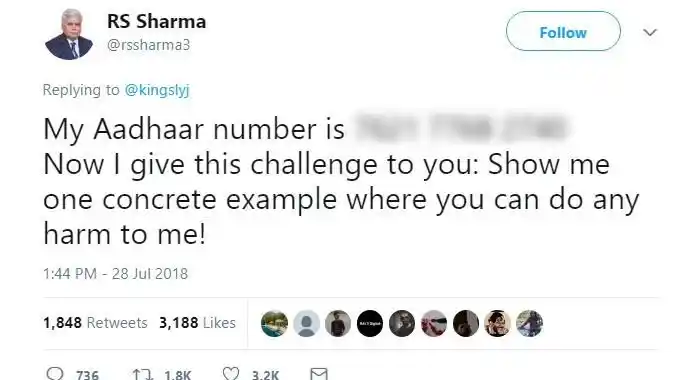Something strange, really strange, happened on last Saturday, 28 July 2018. Our IAS (Indian Administrative Service) policy makers, usually imprisoned in dusty, yellowing, red-taped files, broke away into the aggressive, either-I-will-or-you-will-screw-me arena of WWE showmanship.

No Humility or Grace in Defeat
Criticism, Like Pain, Can Heal
A Critic Today is Intimidated, Treated Like an Enemy
You do not debate with him on merits. You do not want to convince him on substance. You have no patience for Gandhi’s exhortation that “we owe it to ourselves as to others to try to understand the opponent’s view-point and, if we cannot accept it, respect it as fully as we expect him to respect ours”.
- “Congress kay neta kaan kholkar sun lijiye, agar seemaon ko paar karoge, toh yeh Modi hai, lene ke dene pad jayenge” (Congress leaders, beware; if you cross your limits, then remember, I am Modi, I shall retaliate with disproportionate force) – this statement by Prime Minister Modi at an election rally in Hubli on 6 May 2018 is perhaps the closest a democratic leader can ever come to advocating violence on his opponents.
- “I want to tell Kashmiri youth that azadi (independence) is not possible. But if you want to fight us, then we will fight you with all our force. Kashmiris have to understand that the security forces haven’t been so brutal – look at Syria and Pakistan. They use tanks and air power in similar situations” – this chilling threat (invoking images of mass genocide) was uttered by Indian Army Chief Bipin Rawat in an interview just 4 days after the Prime Minister, above.
- Even harmless popular fiction is not spared. Fanney Khan, a simple film about a cab driver and his dreams, featured a song “merey achche din kab aayengey” (when will my good days come). It was a sarcastic take-off on Prime Minister Modi’s 2014 electoral slogan of delivering “achche din” (good days) for all Indians. Within 10 days, the film-makers were forced to change the song to “merey achche din ab aaye re” (my good days have come!).
- Why, just today, three journalists of ABP News have been forced to quit. Their folly? Criticism of government propaganda.
I’ve Faced Similar Wrath…
Rambhai is one among a million other minds which are dizzyingly trying to figure out a way to save the Rs 4 lakh crore that are lying in more than a million basements, mattresses, suitcases, lockers, and even in household utensils. Do you think they will just roll over and die, quietly giving up their lifelong “earnings” to a “rapacious taxman”? No sir, they won’t.
So, dear Prime Minister, unfortunately and sadly, intelligent (and eventually vindicated) criticism continues to be called “allegations” in today’s post-truth India. It’s this very culture of enmity that also encourages a God-fearing, sober bureaucrat to “dare” and damn his critics, instead of embracing and learning from them.
